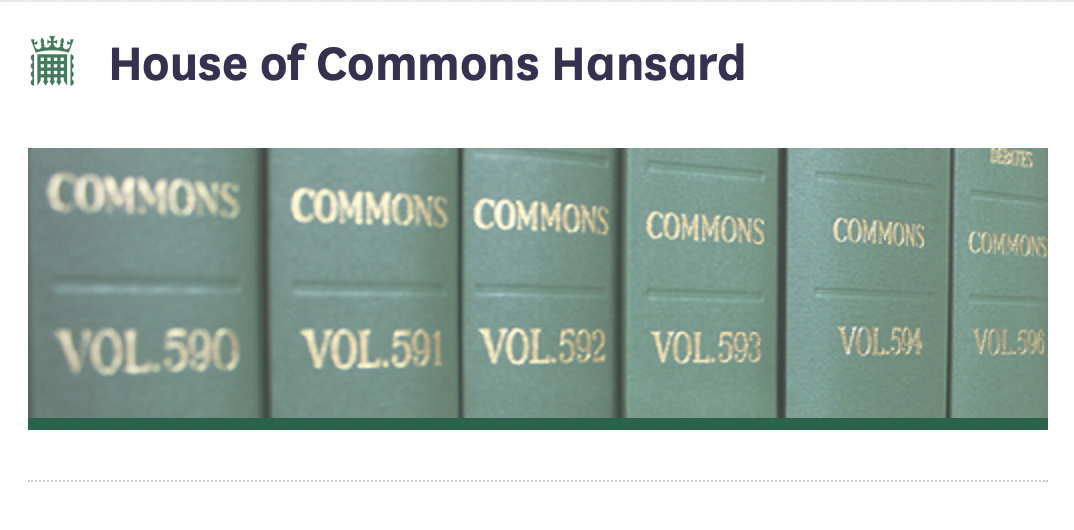 John Whittingdale Minister of State
John Whittingdale Minister of State
First, I congratulate Daisy Cooper on obtaining this urgent question and demonstrating that persistence pays off.
The BBC has for decades played a vital role in this country’s cultural and civic life, and that has never been more true than during the last few months. During an unprecedented global crisis, it has helped to counter disinformation and share factual information about the coronavirus pandemic, while reinforcing important public health messaging. It has been a constant source of entertainment. It has helped to fundraise for charities through “The Big Night In”, which the Government match funded pound for pound, and it has helped countless families across the UK to educate their children from home through services such as BBC Bitesize.
The BBC has also been a source of comfort to many during this pandemic, and none more so, perhaps, than those elderly citizens who have been forced to shield and stay at home and who are sadly most at risk of experiencing loneliness and isolation as they do so. That is why we welcomed the BBC’s initial decision at the beginning of the lockdown to continue to grant the licence fee concession to the over-75s, and it is why we were deeply disappointed when the BBC board announced earlier this month that it would be ending that concession from 1 August. As a result, four out of five of those previously eligible for a free TV licence will now need to pay. That is a decision for the BBC, but the Government regret the approach that it has taken.
In the 2015 funding settlement—a settlement that was widely considered to be a generous one and which the director-general said was a strong deal for the BBC—we agreed with the BBC that responsibility for the over-75s concession would transfer to it in June 2020. The BBC agreed to have both the policy decision and the funding responsibility. That reform was subject to public discussion and debated extensively during the passage of the Digital Economy Act 2017. During those discussions and the passage of that legislation, Parliament agreed that the future of the over-75 concession and how and when it would be implemented was entirely a matter for the BBC.
The Government’s view is that the BBC should be doing more, given the generous settlement that it received. During the 2015 settlement, we gave the BBC a number of things in return for taking on this responsibility. We closed the iPlayer loophole. We committed to increasing the licence fee in line with inflation, and we reduced a number of other BBC spending commitments. To help with financial planning, we agreed to provide phased transitional funding over two years to gradually introduce the cost to the BBC.
It is now essential that the BBC, having taken the decision to end the concession, gets the implementation of the change right and is not heavy-handed in its approach. While lockdown may be easing, older people across the country still face many challenges and still rely on their TV as much as they did a few weeks ago. The BBC can and should therefore do more to support older people, and it should look urgently at how it can use its substantial licence fee income to support older people and deliver for UK audiences of all ages.
As the national broadcaster, the BBC has a duty to represent all of the nation—both its youngest and oldest citizens, no matter where they live—and I am aware that many people have expressed concerns about cuts to regional programming as well as the BBC’s recent announcement of staffing reductions. Let me be clear that both operational and editorial decisions are a matter for the BBC. It is an independent body and the Government rightly have no say over the day-to-day decisions that it makes on programming, staffing or the administration of the licence fee, but as I have said, including during a recent Adjournment debate, the Government believe that the BBC must represent all of Britain. We set clear targets for news and current affairs and the need to represent all parts of the UK and the charter as part of the BBC’s mission and public purposes. It is for the BBC to meet these and Ofcom to hold it to account on doing so. That means engaging and reporting on local issues across our diverse communities, not just reflecting the views of the metropolitan bubbles of London and Manchester.
While the BBC remains operationally and editorially independent from the Government, we will continue to push it on these issues so that we can ensure that the BBC remains closer to the communities that it serves.
